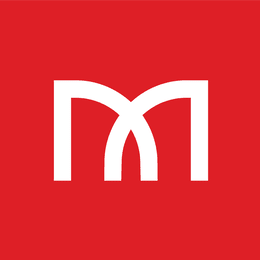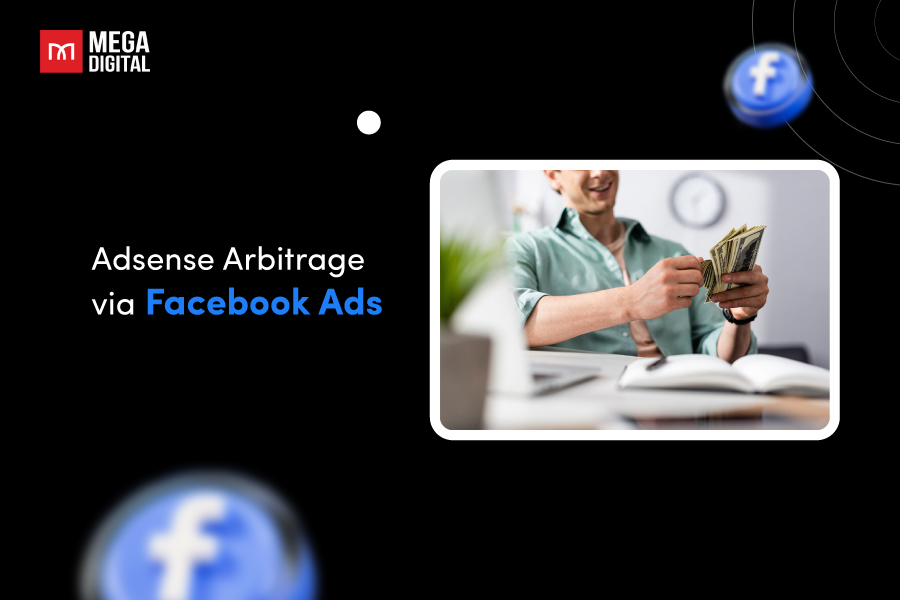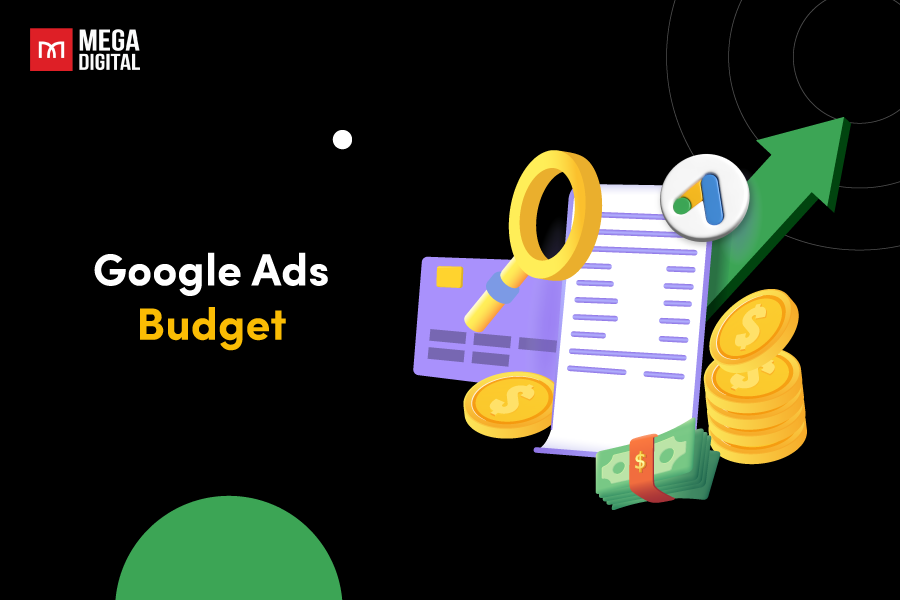Among the myriad of advertising options available on Facebook, two popular choices often arise: Facebook Ads and Boosted Posts. While both aim to amplify reach and engagement, they serve distinct purposes and offer unique advantages. In this blog post, we’ll delve into the differences between Facebook Ads vs Boosted Posts, exploring their respective features, functionalities, and best use cases to help businesses make informed decisions when planning their social media marketing strategies.
What are Facebook Ads and Boosted Posts?
Facebook Ads
Facebook Ads are a form of paid advertising on the Facebook platform that allows businesses to promote their products, services, or content to a targeted audience. These ads appear within users’ Facebook feeds and in other platform areas, such as the right column and Messenger.
Facebook Ads offers a wide range of customization options, including ad formats (such as image ads, video ads, and carousel ads), targeting criteria (such as demographics, interests, and behaviours), and campaign objectives (such as brand awareness, engagement, and conversions). Advertisers can set specific budgets and bidding strategies, track performance metrics, and optimize their campaigns to achieve their marketing goals.
Boosted Posts
Boosted Posts are a feature on Facebook that allows users to pay to increase the reach and visibility of their organic posts. When a post is boosted, it is shown to a larger audience beyond the users who already follow the Page. Boosted Posts appear in users’ News Feeds and can include various types of content, such as text, images, videos, or links.
Differences between Facebook Ads vs Boosted Posts
Facebook Ads and Boosted Posts aim to increase visibility and engagement on the platform by promoting content to a broader audience. They utilize paid advertising to reach users beyond the organic reach of a Facebook Page, thereby increasing the likelihood of engagement with the promoted content.
Additionally, both options allow advertisers to target specific demographics, interests, and behaviours to ensure their content reaches the most relevant audience. While they share the common goal of enhancing brand visibility and engagement, boosted posts vs ads do have some striking differences that advertisers and brands should keep in mind.
Campaign Objectives
One notable distinction between Facebook Ads and Boosted Posts is their campaign objectives.
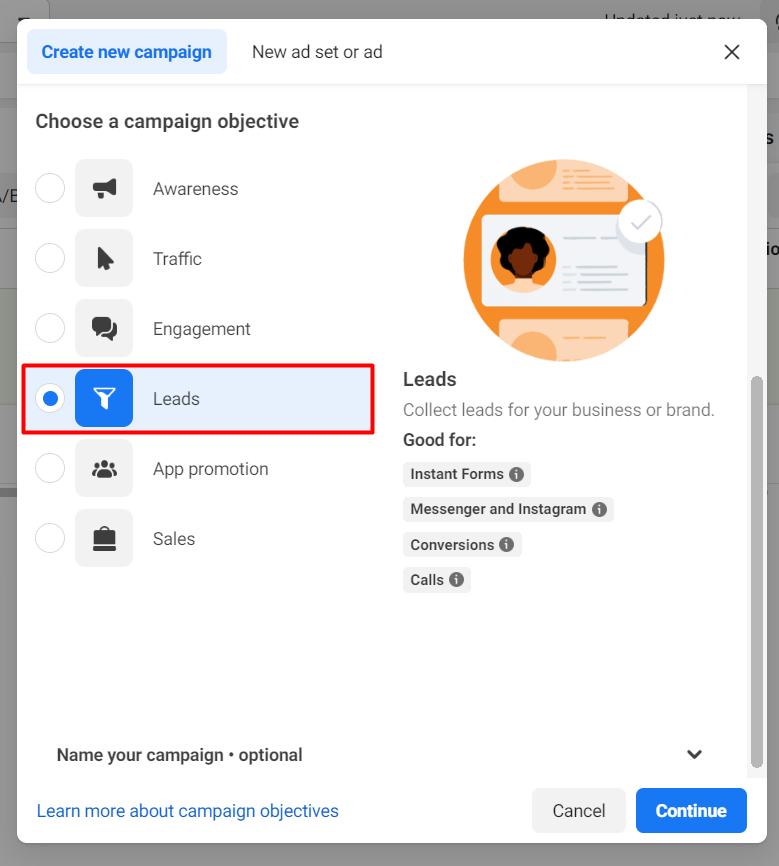
Facebook Ads offer various campaign objectives tailored to specific marketing goals. These objectives include brand awareness, engagement, traffic, conversions, and app installs. Advertisers can choose the objective that best aligns with their marketing strategy and desired outcomes. Facebook Ads campaigns are optimized based on the chosen objective, with ad delivery, bidding strategies, and performance metrics tailored accordingly.
For example, a company looking to increase brand awareness may opt for the “Brand Awareness” objective, while a business focused on driving website traffic may select the “Traffic” objective.
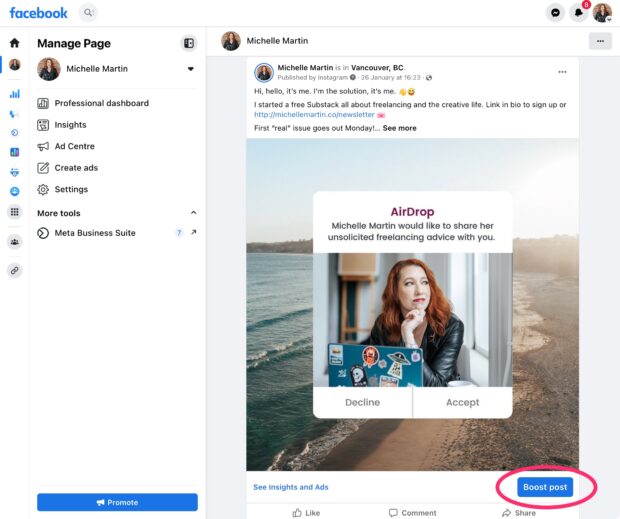
Unlike Facebook Ads, Boosted Posts do not have specific campaign objectives to choose from. Instead, they aim to enhance the visibility of existing organic content by extending its reach to a wider audience. While Boosted Posts may indirectly contribute to broader marketing goals, such as increasing brand awareness or driving website traffic, they lack the specificity and optimization options available with Facebook Ads.
Additionally, the primary focus of Boosted Posts is to increase engagement metrics such as likes, comments, and shares rather than driving specific actions or conversions.
Targeting Options
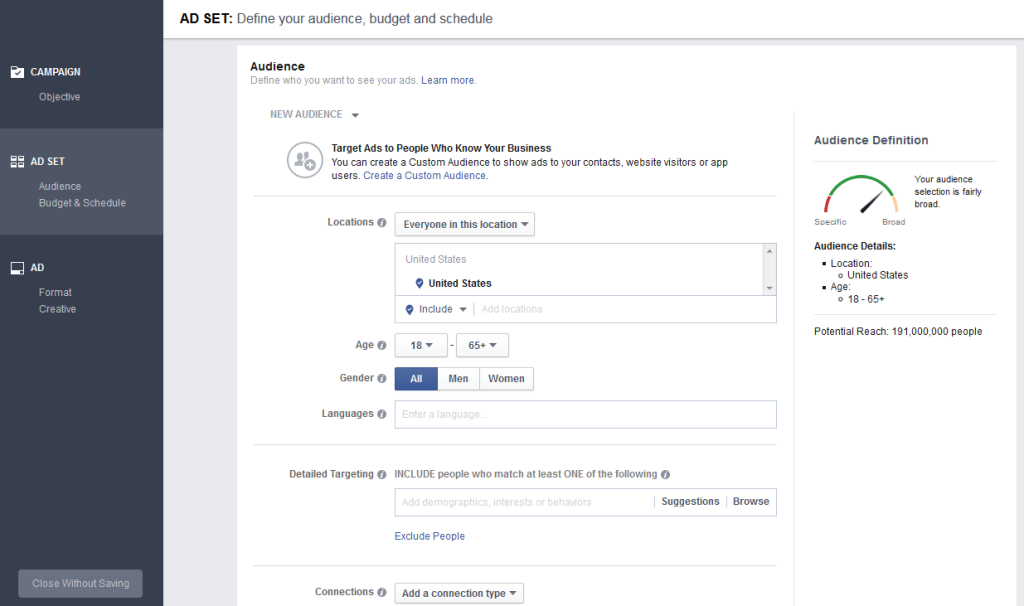
Facebook Ads provide advertisers with extensive targeting capabilities, allowing them to reach specific audiences based on demographics, interests, behaviors, and more. Advertisers can create highly segmented audiences to ensure their ads are shown to the most relevant users. Additionally, Facebook Ads offer advanced targeting features such as custom audiences, lookalike audiences, and retargeting options, which enable advertisers to reach users who have previously interacted with their brand or are similar to their existing customers.
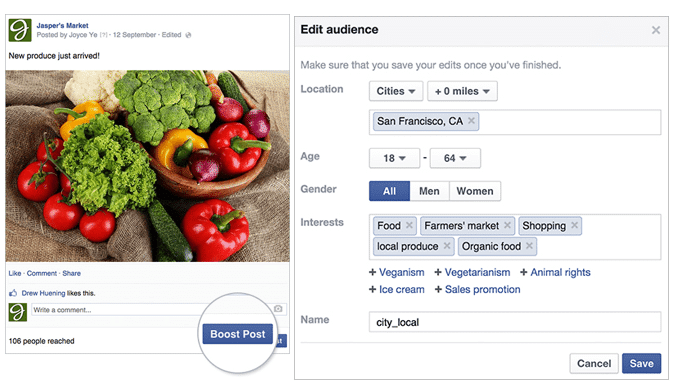
In contrast, Boosted Posts have more limited targeting options. While advertisers can still target users based on factors like location, age, gender, and interests, the targeting parameters are simpler and less detailed compared to Facebook Ads. Boosted Posts lack advanced targeting features such as custom audiences and lookalike audiences, making it more challenging for advertisers to reach specific audience segments or retarget users who have previously engaged with their content.
Ad Formats and Features
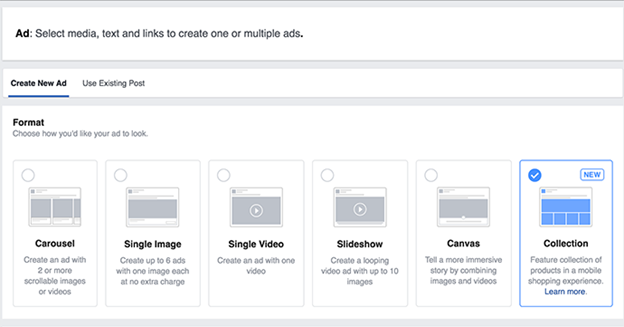
For more advanced advertising tailored to business goals, Facebook includes more than 12 ad formats for brands to choose from, including image, video, carousel, slideshow, and more. These ad formats provide advertisers with flexibility and creative freedom to showcase their products or services.
Additionally, Facebook Ads come with various features such as call-to-action buttons, lead forms, and creative optimization, allowing advertisers to drive precise actions and optimize their campaigns for maximum effectiveness.
>>> Read more: All Types of Facebook Ads – A Comprehensive Guide [2024]
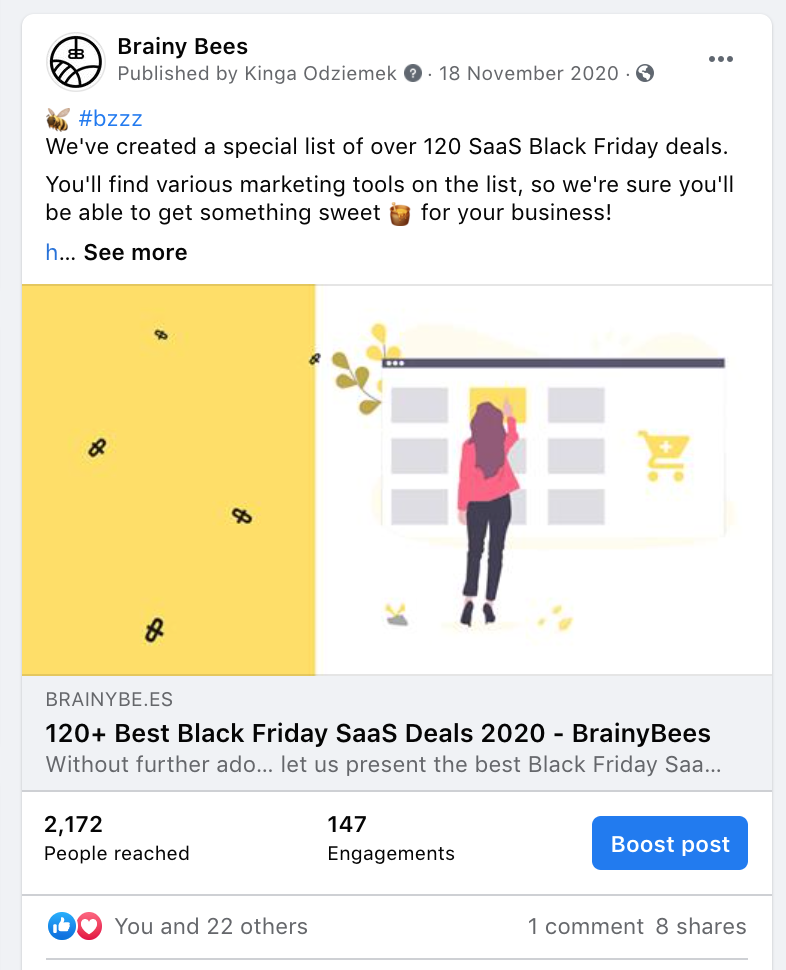
Boost Posts are limited to the format of the original organic post. While advertisers can boost posts containing text, images, videos, or links, they do not have the option to choose from different ad formats or add advanced features like call-to-action buttons or lead forms. Boosted Posts are designed to quickly and easily increase the reach and engagement of organic content without the need for extensive customization or additional features.
Budget and Bidding
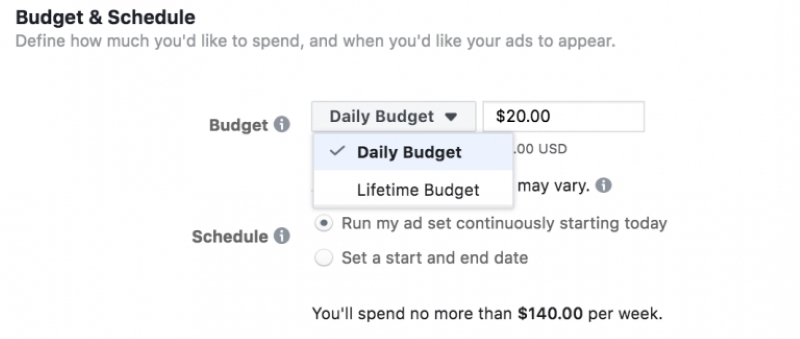
With Facebook Ads, advertisers control budget allocation and bidding strategies more. They can set daily or lifetime budgets, allowing them to specify how much they want to spend on their ads each day or throughout the campaign.
Also, advertisers can choose between manual or automatic bidding, where they can either set the maximum bid they are willing to pay for their ads or let Facebook automatically optimize bids to achieve the best results within the specified budget. Facebook Ads also offer options for bid caps, allowing advertisers to set a maximum bid limit to control costs and prevent overspending.
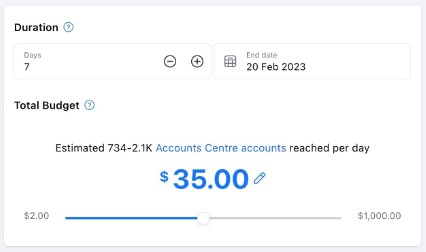
Unlike that, Boost Posts have simplified budgeting options. Advertisers set a fixed budget for the boost’s duration without the ability to specify daily or lifetime budgets. This advertising method also does not offer bidding options, as the cost is determined based on audience size, targeting criteria, and competition for ad placements.
To be considered, Boosted Posts are much cheaper than Facebook Ads while providing a straightforward approach to budgeting. However, they lack the flexibility and control available with Facebook Ads.
>>> Read more: Facebook Advertising Cost Breakdown [Data Updated 2024]
Campaign Management
Campaign management differs between Facebook Ads and Boosted Posts in complexity and customization options.
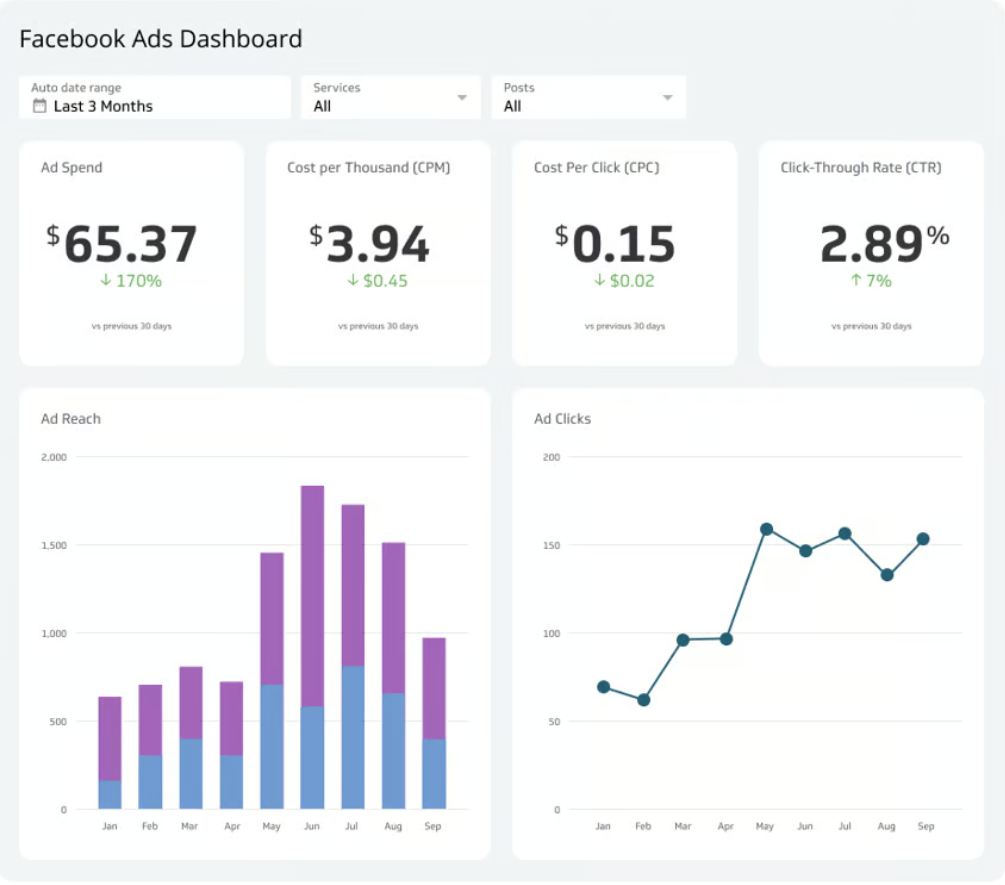
For Facebook Ads, campaign management involves creating campaigns, ad sets, and ads within Facebook Ads Manager. Advertisers can choose from various campaign objectives, such as brand awareness, engagement, conversions, etc., and set specific targeting parameters, budgeting options, and bidding strategies for each ad set. They can also monitor performance metrics, adjust campaign settings, and optimize ads based on real-time data within Ads Manager.
On the other hand, managing Boosted Posts is simpler and more streamlined. Advertisers can boost posts directly from their Facebook Page with just a few clicks. They have limited customization options compared to Facebook Ads, such as selecting the target audience, budget, and boost duration. Boosted Posts do not require extensive campaign setup or monitoring within Ads Manager, making them ideal for advertisers looking for a quick and easy way to increase the reach and engagement of their organic content.
Key Points to Compare between Facebook Boost Posts vs Ads
Here is a summary of what differentiates Boost Posts and regular Facebook Ads:
| Facebook Ads | Boosted Posts |
|---|---|
| Customize based on business objectives: brand awareness, engagement, traffic, conversions, and app installs. | Increase the reach and visibility of organic posts directly from a Facebook Page. |
| Provide detailed insights and analytics through Facebook Ads Manager. | Set up and track data directly in Facebook Page. |
| Extensive targeting options, including demographics, interests, behaviors, and custom or lookalike audiences. | Basic targeting parameters such as audience location, age, gender, and interests. |
| Support various formats like image ads, video ads, carousel ads, slideshow ads, and more. | Only advertise based on organic posts that already exist on Facebook Page. |
| More customizable bidding options (daily or lifetime budget). | Set a fixed budget for the duration of the boost |
What should Brands Choose: Facebook Ads vs Boosted Posts?
The choice between Facebook Ads and Boosted Posts depends on the brand’s specific goals, budget, and resources. Here are some considerations to help make the decision:
- Choose Facebook Ads if:
- Already has specific campaign objectives such as brand awareness, conversions, or app installs
- Requires advanced targeting capabilities or want to reach niche audiences
- Values creative flexibility and wants to experiment with different ad formats and features
- Prioritizes data-driven decision-making and needs detailed insights into campaign performance
- Choose Boosted Posts if:
- Wants a quick and straightforward way to increase the reach and engagement of organic content
- Has a limited budget and wants to boost existing organic posts without investing in a full-fledged ad campaign
- Has limited resources or expertise in managing Facebook advertising campaigns
Ultimately, brands should consider their specific marketing goals, target audience, budget, and level of expertise when deciding between Facebook Ads and Boosted Posts. Both options have their own strengths and can be effective depending on the brand’s unique needs and objectives.
Final Word
The decision between Facebook Ads vs Boosted Posts boils down to understanding the brand’s objectives, budget, and resources. Brands should carefully evaluate their marketing goals and audience needs to determine which option best aligns with their overall strategy. Whether opting for the comprehensive capabilities of Facebook Ads or the straightforward approach of Boosted Posts, brands can leverage these tools to effectively reach and engage their target audience on the Facebook platform.
For optimal advertising results, partner with us – Facebook Agency. Our expertise in managing ad agency accounts ensures optimized campaigns and maximum impact for your business goals. Contact us now to harness the power of Facebook advertising with confidence.
